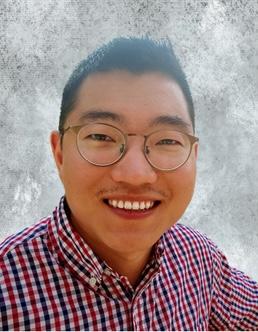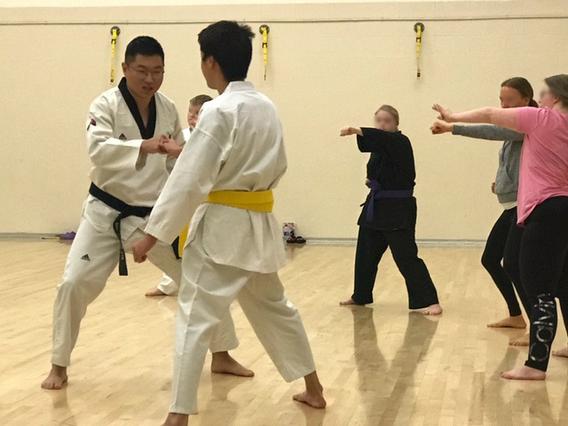In Daehyoung “DH” Lee’s profession, he works by the motto, “keep calm and stay adapted.” Lee was recently hired as an assistant professor to help build UMD’s new Developmental Adapted Physical Education minor, which began spring semester.
Developmental Adapted Physical Education (DAPE) is an inclusive way to improve health and well-being for all people. It makes physical activity more accessible and attainable by modifying activities to meet individual needs, enabling people with disabilities to experience quality physical education.
Lee explains that all physical activities can be made inclusive for people with special needs. No one has to be excluded because of their mental, physical, or financial abilities.
There is a teacher shortage in the area of Developmental Adapted Physical Education, which is federally mandated in public schools for all students with disabilities. UMD is currently the only campus in the University of Minnesota system that offers the DAPE licensure.
To be successful in this field, teachers must be creative, caring, patient, and have a passion for helping others. Students in the new minor program will learn how to empower people with disabilities and modify physical activities to promote their health and well-being throughout their lifespans. This includes teaching fundamental motor skills; physical and recreational activities; aquatic skills; and competitive adaptive sports.
With the help of UMD colleagues and students, Lee created a video demonstration of fun adaptive icebreaker games to illustrate DAPE in action for the Minnesota Developmental Adapted Physical Education statewide virtual conference last September.
From Seoul, South Korea to Duluth, Minnesota
Born and raised in Seoul, South Korea, Lee has had extensive field experience in a multitude of countries. After spending time as a Taekwondo martial artist in Seoul, he went to college to study athletic coaching. Although Lee enjoyed this field, his experiences helping a sister-in-law with a disability sparked his interest in pursuing a career where he could help people with disabilities.
Following acceptance into a master’s program in adapted physical activity in Belgium, Lee was able to choose another European university as a part of his scholarship program. He chose a school in the Czech Republic and worked closely with people who have disabilities, even participating in the regional Special Olympics program.
Lee later attended Indiana University for a doctorate program in kinesiology and ran an adapted PE program for children with disabilities who live in Bloomington, Indiana and surrounding areas for 4 years as a program coordinator.
Having the ability to help improve a child’s health and well-being is part of what makes Lee so passionate about this profession. “It is inspiring to meet kids of all abilities and see their happiness when attending the PE classes,” Lee says.
He notes that adapted PE is all about small victories and long-term improvement. “When I was a volunteer teacher at the local YMCA in Bloomington, I was teaching an adapted Taekwondo class,” he explains. “I had a nonverbal student with autism spectrum disorder and during the first meeting, we didn’t even know how to handle him, but as he progressed through the class, I saw him improve. By the time I finished my degree program, the kid was able to move, bow, and speak out.”
Lee loves interacting with people of diverse backgrounds and seeing prospective adapted PE teachers grow and develop in the field. In the DAPE program at UMD, Lee is most excited about a new adaptive aquatics course to be offered in the pool.
A New App to Encourage Activity
Along with teaching, Lee is a researcher and application developer. He is developing a mobile app, called PuzzleWalk, which is available on Google Play and in the Apple App Store, for people with autism spectrum disorder (ASD). “It is designed to promote activity and reduce prolonged sedentary behavior for people with ASD,” he explains.
The app is a visualized puzzle game that uses evidence-based gamification and behavior change techniques to promote physical activity. In order to play the puzzle games in the app, the user must walk or engage in other physical activities. Their accumulated walking steps then determine the amount of puzzle-solving time and number of tokens they receive, which enable them to play more games. This motivates users to exercise more, as more steps equate to more play time.
Lee’s goal is to discover and design more affordable and accessible ways to improve physical activity for children with disabilities. “PE isn't a medicine for all of the problems we have, but it is a great way to improve the overall quality of life,” he says.
Jayna Brown, a UMD student who is majoring in Integrated Elementary and Special Education, wrote this article. She works with Lissa Maki as a communications assistant in the College of Education and Human Service Professions.


